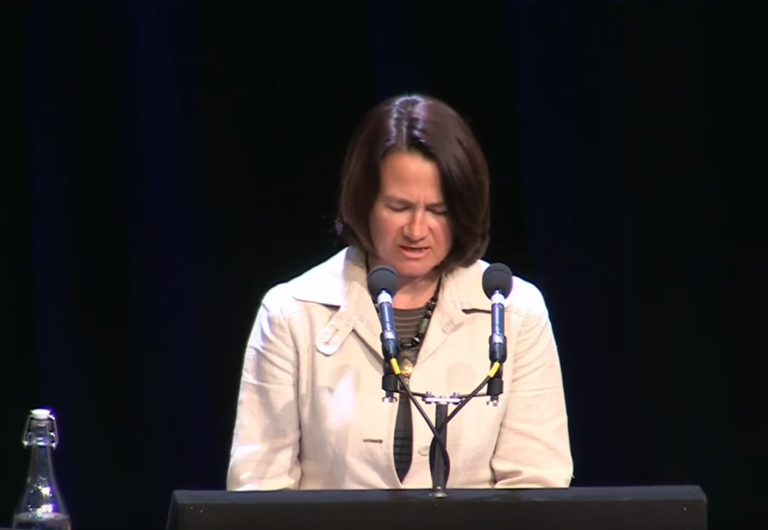I had been looking forward to the Swarthmore Lecture for some time, ever since I had heard it was to be delivered by Catherine West, and it didn’t disappoint.

I had read about the Islington Fairness Commission and hoped to hear more. I have always believed that one person joining with others can change lives and here was an excellent example. Here was someone not just talking about it, or trying to inspire others to action, here was someone who just got on and did it. I didn’t see ego, I didn’t see the ‘all about Catherine show’ I just heard about the work. And I was in awe.
More equal societies are not just more productive they are happier
When I first worked at Birmingham Friends of the Earth I thought that campaigning and activism was what I saw people doing out on the streets but I soon learned that a great part of campaigning and activism work is behind the scenes; developing ideas, attracting others to join, establishing relationships, designing resources, writing letters and so on. I felt that for 90% of the time it was backroom work; often seen as dull and boring. But it is that work that is so crucial, that preparatory work that builds the ground for transformation.
I listened again to the lecture; listening out for specifically for the work of the Fairness Commission; to have become the UK’s first accredited living wage local authority in 2012 securing the living wage for all of its 5 thousand directly employed staff; to have made the decision to provide hot free meals for all primary aged children aged up to 11; to have reduced the wage of the chief executive from £210,000 to £160,000 thereby prepared to level up as well as level down and then to have reviewed all of the councils contracts in 2013 and built a living wage requirement into its 5 million procurement activity.
‘All of this matters for me not just because economic equality is important as an end in itself although undoubtedly that’s true but because it also is a critical means to a healthier society characterised by greater respect and less anxiety. More equal societies are not just more productive they are happier, have lower levels of depression and suicide, show fewer signs of status competition and exhibit more peaceful psychology.’ Catherine West
This commission changed the lives of thousands of people and sparked further Fairness commissions around the country and it started with an idea, a seed that grew and grew.
How many of us sit with ideas of how things could be different?
During the lecture, Catherine posed some questions and I would like to post them again here for your consideration –
How politically engaged are you?
Could you address inequality in housing where you live?
Are there big employers in your area, are they accredited Living Wage organisations, and, if not, what might you do about it?
How real is equality of opportunity for young people in your area, and what can you do to level the playing field?
Catherine finished the lecture with these words;
‘A world that is more equal economically would be a world that is more spiritually in tune too. I believe you and I can help bring about a world like that. Quakers over centuries have acted on this same conviction and I hope you will feel inspired to help your local meeting.’ Catherine West
If you would like to explore further the area of equality and inequality and what we as Friends can do about it as well as other themes from the Swarthmore Lecture – then Catherine and I are running a weekend course at Woodbrooke from 3- 5 November, Faith in Politics
The lecture can be heard online here.



